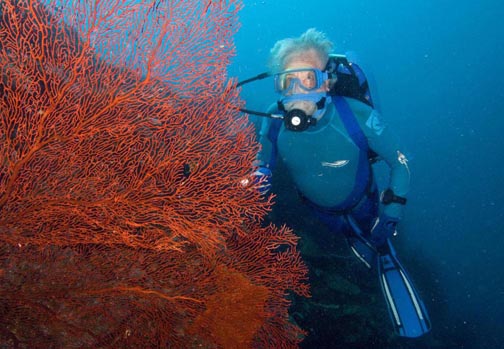Tech acumen, can-do mindset, core values and grit set Puerto Rico’s tech talent apart

Héctor Jirau of Parallel18 and Dan Lammot of threshold.world explain how the island’s bilingual, multidisciplinary workforce combines skill and resilience.
Puerto Rico’s tech workforce stands out on the global stage not only for its strong education and technical acumen, but also for a rare combination of cultural values, multidisciplinary skills and resilience that sets the island’s tech talent apart, industry leaders recently told News is my Business.
Puerto Rico has the sixth-highest availability of scientists and engineers in the world, according to the World Economic Forum’s Global Competitiveness Index. A report by the Office of Community College Research and Leadership found that 23.3% of degrees awarded by Hispanic-serving community colleges in Puerto Rico were in STEM fields — more than double the 11.4% awarded at U.S. mainland counterparts that year.
“In terms of technical talent, knowledge and niche expertise, Puerto Rico excels,” said Héctor Jirau, executive director of Parallel18, the business acceleration program of the Puerto Rico Science, Technology and Research Trust. “A great part of the value added the island has is the talent, which has been driving the manufacturing sector for many years,”
Multidisciplinary and multitasking
Puerto Rico’s tech talent also stands out because it is multidisciplinary and multitasking, Jirau noted.
“An electrical engineer just doing electrical engineering is something you don’t see here. You can see it at Harvard or NYU [New York University], which are very specific about technical development, but here everybody is very multidisciplinary. They know how to manage projects and operations. They know about supply chains, permits, accounting, marketing, sales — not just engineering,” he said.
Because of these characteristics, Puerto Rico tech workers make unique entrepreneurs.
“A startup in Silicon Valley has two founders — a CTO [chief technology officer], the technical one, and a CEO, the businessperson. They’re very specific, very niche-focused. One can’t do what the other one does, and that’s why they’re together,” Jirau said.
“Here, instead of having two founders, you have CEOs who are extremely good technically and who will develop the software, prepare the platform for deployment, design the go-to-market strategy, and will sell it, too. They know the technical part and the operational part. You don’t see that to that extent on the mainland. It’s very rare,” he said, adding that the island also has something that most U.S. jurisdictions lack: a bilingual workforce.
A growing tech ecosystem
Over the last decade, Puerto Rico has been developing a strong tech ecosystem — both fueled by and resulting in superior tech talent, Jirau said.
“It’s now taking the form of a centralized ecosystem, like the one Silicon Valley had 20, 25 years ago. For a country to advance and innovate, you need to create value quickly and in a tangible way. And if you don’t have a focused and well-nourished ecosystem, you can’t get there,” he said.

The echar pa’lante attitude
Working and doing business in Puerto Rico can be more challenging than in other U.S. jurisdictions because of a complex permitting process, politics and geographical barriers, among other issues. As a result, local engineers and other tech workers tend to be more driven and resilient, Jirau explained.
“The execution is where it’s at,” he said. “You can be the best engineer in terms of knowledge, an outstanding 4.0 student, but if you don’t know how to execute, you won’t get far. You can be a student with a 3.0 GPA, not as pretty as the 4.0, but if you roll up your sleeves and take on whatever comes your way, that makes a big difference. What matters is how you execute — how you do your job.”
This can-do attitude stems from cultural values, he said.
“Puerto Ricans are taught when they’re kids that you have to get your hands dirty if you want to echar pa’lante [to push forward, keep going], so you grab the bull by the horns. Something breaks, you try to fix it, even if it’s not part of your job. I’ve seen that set Puerto Ricans apart when it comes to innovation, solving problems and entrepreneurship.”
This is also why the island loses so much talent to the U.S. mainland, Jirau continued.
“Stateside companies hire Puerto Ricans and see how good they are — they’re talented, hardworking and produce good results — and they say, ‘I want another one like that.’ These companies use data and metrics, so they want a sure thing, and this is a good return on investment for them. They know that if they hire a Puerto Rican software engineer, they’re going to obtain good results, so why keep looking?”
Humanity
Dan Lammot, co-founder and CEO of threshold.world, provider of tech solutions for nonprofits and social impact organizations, also points to mindset and personality traits that make Puerto Rico tech talent exceptional.
“Puerto Rico has this incredibly unique combination of humanity and technical acumen, and that’s really rare,” Lammot told News is my Business.
“We’ve been lucky to work in many countries around the world, serving customers all over the planet for the last 16 years in different enterprises,” he said. “But the unique cultural makeup … combined with the software engineering prowess that comes from the local universities is something that you notice is different when you see it and witness it at work.”
Long-term view
Another key trait in Puerto Rico’s tech workers is that they want things that last, Lammot said.
“When you live and come from a place where all of these shocks happen — economic, sociopolitical, environmental — and there are less opportunities to choose from because it’s a smaller environment, people take a longer view about their contribution, and that benefits organizations,” he said.
“It’s not about building something amazing and moving on to something more amazing — like that ambitious mentality of building and building for building’s sake or making money. It’s about creating things that last.”
A long-term view also leads to loyalty, Lammot said.

“That’s why NASA recruits in Puerto Rico. That’s why General Electric recruits in Puerto Rico … because they have figured out that our people want to develop skills and continue to evolve, and they want to stay instead of looking for the next opportunity. They stick around. And that continuity is a huge benefit, both to the companies and their customers.”
Values and grit
Puerto Ricans’ deep sense of community, family values and grit translate to the workplace, Lammot said. “There’s a sense of hope — of, if not us, then who? There’s talent and grit and loyalty.”
He pointed out that these values and attitudes seem to concentrate in places where there’s a deeper sense of community and roots.
“Maybe proximity to the farm and the people who came before them, who made it possible for them to do what they do — maybe that has something to do with it,” Lammot said. “They’re constantly reminded of the privilege they have been afforded through luck or blessings … and maybe that creates roots and puts them in a position where they want to pay it forward.”
Service mentality and humility
A sincere service mentality, combined with humility and a commitment to excellence, continuity and consistency breeds trust, Lammot said.
“So, it’s not just like building something amazing and getting on a pedestal — like a tech pro mentality, like ‘I’m so great.’ It’s in the context of service for those you work with,” he said. “They feel a deep sense of duty to give back to their communities and others in their team, usually very quietly, which makes them incredible leaders — humble leaders.”











